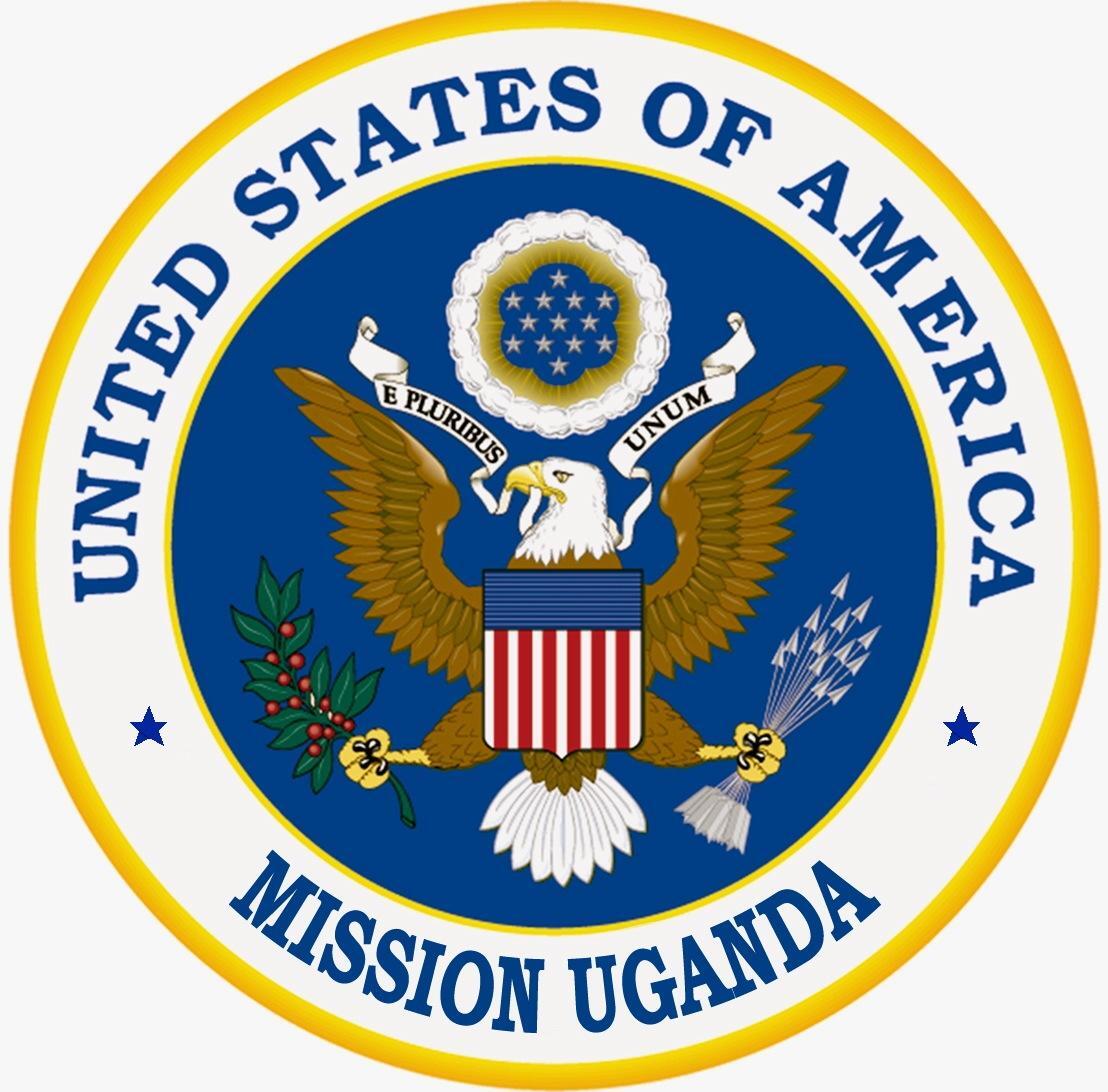U.S. warns about dangers of doing business in Uganda
Colin Stewart is a 45-year journalism veteran living in Southern…
Uganda’s Anti-Homosexuality Act has made the situation worse, U.S. says

The U.S. Government yesterday warned businesses that Ugandan human rights abuses and corruption put at risk companies’ reputations and finances if they do business there.
The official warning noted: “Uganda’s enactment of the Anti-Homosexuality Act (AHA) on May 29, 2023, further increases restrictions on human rights, to include restrictions on freedoms of expression and peaceful assembly, and exacerbates issues regarding the respect for leases and employment contracts.”
Corruption “as well as violence against human rights activists, media members, health workers, members of minority groups, LGBTQI+ persons, and political opponents” pose dangers to individual visitors and businesses operating in Uganda, the warning stated.
The U.S. officials added: “The enactment of the AHA expands these risks and creates additional opportunities for interference with business operations as it, among other things, mandates reporting of individuals suspected of homosexual behavior, imposes a life sentence for consensual same sex relations, and allows for a 20-year prison sentence for mere “promotion” of homosexuality, which is defined so broadly as to potentially cover a wide range of activities. For example, there have been credible reports of landlords evicting private and commercial tenants based on the landlord’s unsubstantiated claim that there is activity taking place in violation of the AHA.”
Melanie Nathan, executive director of the U.S.-based At African Human Rights Coalition (AHRC), praised the U.S. warnings:
“We endorse and commend this advisory. However we would be remiss to fail to note that this particular advisory does not mention the actual hunting of LGBTQI+ people, and resulting brutal violence, as well as extortion and blackmail of such persons by state and no state actors alike.
“While we have not yet seen any foreigners directly impacted at this post-AHA-23 juncture, we have no doubt, given the extent of the brutality, that the risk is grave for any business, individual, service provider, tourist, visitor to Uganda.
“One’s mere style of dress could result in perception of LGBTQI+ and place one in great danger under current conditions or even the new law. Who one associates with can place one in great danger. … This is not about boycott and more about personal safety.
“African Human Rights Coalition is currently engaged in relocation efforts for LGBTQI+ Ugandans experiencing direct danger and persecution.”
This is an official press release about the U.S. business advisory:
U.S. Government Issues a Business Advisory for Uganda
The Departments of State, Labor, Health and Human Services, Commerce, and the U.S. Agency for International Development, today issued a Business Advisory on Uganda. The Advisory informs U.S. businesses, individuals, and other U.S. persons, including health services providers, members of academic institutions, and investors, of potential risks they may face if they are conducting, or contemplating to conduct, business in Uganda.
Businesses, organizations, and individuals should be aware of potential financial and reputational risks resulting from endemic corruption, described in more detail in the 2023 Investment Climate Statement, as well as violence against human rights activists, media members, health workers, members of minority groups, LGBTQI+ persons, and political opponents described in the 2022 Country Report on Human Rights Practices in Uganda. Uganda’s enactment of the Anti-Homosexuality Act (AHA) on May 29, 2023, further increases restrictions on human rights, to include restrictions on freedoms of expression and peaceful assembly, and exacerbates issues regarding the respect for leases and employment contracts.
This is the text of the full advisory:
Uganda Business Advisory: Risks and Considerations for Businesses in Uganda
Summary

The U.S. Departments of State, Labor, Health and Human Services, Commerce, and the U.S. Agency for International Development, are issuing this advisory to inform U.S. businesses, individuals, and other U.S. persons, including health services providers, members of academic institutions, and investors (collectively hereafter “businesses, organizations, and individuals”) of potential risks if conducting or contemplating conducting business in Uganda. Businesses, organizations, and individuals should be aware of potential financial and reputational risks resulting from endemic corruption, described in more detail in the 2023 Investment Climate Statement, as well as violence against human rights activists, media members, health workers, members of minority groups, LGBTQI+ persons, and political opponents. Uganda’s enactment of the Anti-Homosexuality Act (AHA) on May 29, 2023, increases restrictions on human rights, to include restrictions on freedom of expression, peaceful assembly, and exacerbates issues regarding the respect for leases and employment contracts.
Background
The 2023 Investment Climate Statement warns investors about risks related to endemic corruption and the lack of respect for human rights in Uganda. In addition, the 2022 Country Report on Human Rights Practices in Uganda provides additional detail regarding restrictions by the Government of Uganda on an independent legislature and the lack of commitment to fair trial guarantees, as well as elite capture of critical institutions, including the military and police.
Heightened Risk for All Prospective Businesses and Investors [See Footnote 1]
There are risks associated with interference in and intimidation of the judiciary, use of influence in the courts to resolve political disputes, and co-opted security forces. Inconsistently implemented legislation, rent-seeking from officials, and intrusive government security and surveillance likewise can adversely impact the ability of U.S. businesses and individuals to operate. These actions may become more frequent in the lead up to the 2026 elections; similar patterns of violence and disregard for the rule of law occurred ahead of the 2021 and 2016 electoral processes.
The enactment of the AHA expands these risks and creates additional opportunities for interference with business operations as it, among other things, mandates reporting of individuals suspected of homosexual behavior, imposes a life sentence for consensual same sex relations, and allows for a 20-year prison sentence for mere “promotion” of homosexuality, which is defined so broadly as to potentially cover a wide range of activities. For example, there have been credible reports of landlords evicting private and commercial tenants based on the landlord’s unsubstantiated claim that there is activity taking place in violation of the AHA.
Several goods imported from Uganda into the United States have also been tied to labor abuses, including those produced by child labor. [See footnote 2] The AHA encourages actions that may lead to further isolation and create additional barriers to education access for children identifying as LGBTQI+, which may increase their risk of dropping out of school and engaging in child labor.
As noted in the 2023 Investment Climate Statement, officials frequently engage in corrupt practices with impunity, and many corruption cases have been pending for years. While anti-corruption laws extend to family members of officials and political parties, in practice many well-connected individuals enjoy de facto immunity for corrupt acts and are rarely prosecuted in court. This endemic corruption can impede U.S. businesses’ ability to engage in government procurement processes and obtain necessary permits. It also poses reputational risks for U.S. companies operating in such a business environment. The AHA creates additional avenues for corrupt actors to extract bribes, delay permits, and hinder competition through LGBTQI+ reporting under the law, or threats of such reporting, which require little to no substantiation.
Heightened Risks for Media, Broadcasting, Advertising, and Related Industries

As noted in the 2022 Country Report on Human Rights Practices in Uganda, security forces subject journalists and media houses to violence and harassment. Meanwhile government officials have directly and indirectly censored media through intimidation and other means. The AHA potentially increases these censorship risks by criminalizing a wide range of commercial activities that are of particular interest to media, broadcasters, the advertising industry, and related industries. For example, the AHA prohibits and penalizes the printing, broadcast or distribution of “material promoting or encouraging homosexuality.” The law does not further define these terms, but in practice government officials have previously criticized media outlets by using a very broad definition of what constitutes promoting and encouraging homosexuality. In addition, the AHA is not explicitly limited to activity occurring inside Uganda, so broadcasters, streaming services and internet advertisers may face risks to their business in Uganda arising from activities outside of Uganda.
Potential for Conflicting Obligations
Businesses and individuals should be aware that they may face potentially conflicting obligations under Ugandan law, including the AHA, and U.S. law or other laws applicable to them. For example, U.S. law prohibits discrimination based on sexual orientation and gender identity in federal contracting under Executive Order 11246 and its implementing regulations. Employees of federal contractors performing work outside the United States are covered by these protections if they were recruited within the United States. Accordingly, if employees recruited within the United States are or will be performing work on federal contracts in Uganda, federal contracting agencies must include sexual orientation and gender identity as prohibited bases of discrimination in the Equal Opportunity Clause in contracts over $10,000.
[1] This advisory is explanatory only and does not have the force of law. It does not supplement or modify statutory authorities, executive orders, or regulations. It is not intended to be, nor should it be interpreted as, comprehensive or as imposing requirements under U.S. law, drawing any legal conclusions about specific fact scenarios regarding particular businesses or entities, or otherwise addressing any particular requirements under applicable law. Its sole intent is to provide information to businesses and individuals that they may consider in assessing their potential exposure to involvement with entities engaged in human rights abuses, as part of a risk-based approach to due diligence.
[2] The Department of Labor’s Bureau of International Labor Affairs (ILAB) maintains a list of goods and their source countries which it has reason to believe are produced by child labor or forced labor in violation of international standards, as required under the Trafficking Victims Protection Reauthorization Act of 2005 (TVPRA) and subsequent reauthorizations. Uganda currently has 13 goods produced with child labor on the TVPRA list: bricks, cattle, charcoal, coffee, fish, gold, rice, sand, stones, sugarcane, tea, tobacco, and vanilla.





I don’t support the AHA law.